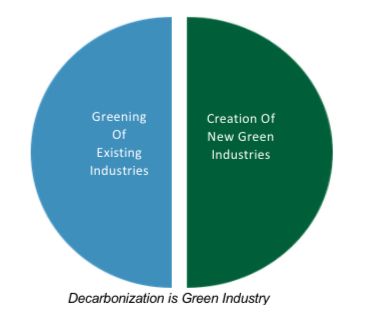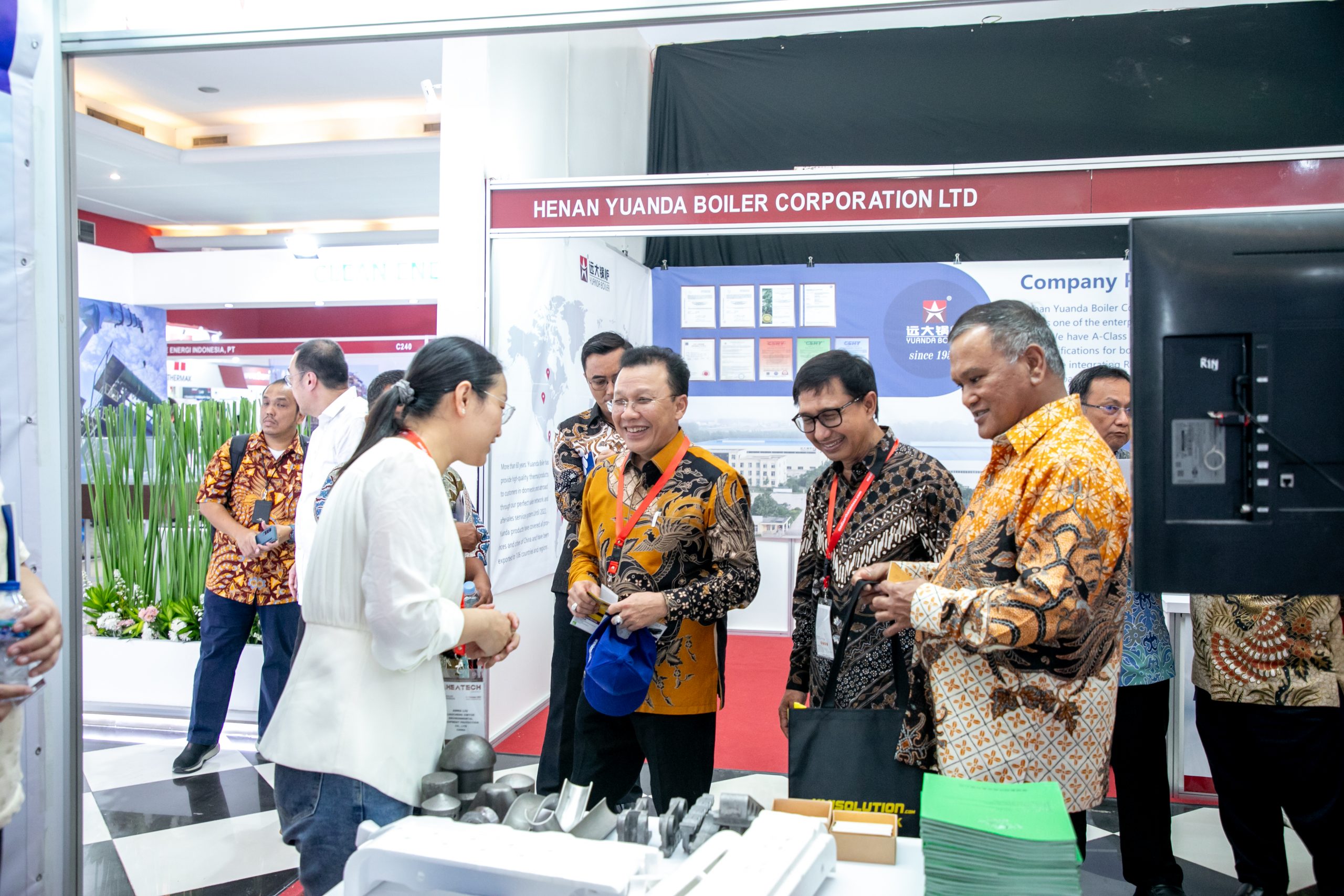The Paris Agreement 2015 kicked off a race towards net zero, fighting climate change and global warming. The Intergovernmental Panel on Climate Change assessment report in 2023 estimated that to achieve the goal of this Agreement, it requires a 43% decline in greenhouse gas emissions by 2030, making it a global priority. With over 70% of the emissions is caused from the use of fossil fuels for power generation, transportation and heat, it is clear that transitioning from fossil fuels for energy tops the list of actions.
Energy transition may be implemented through various avenues with 2 main paths being Energy Diversification – diversifying the energy sources used with more renewable energy options, and Decarbonization – reducing greenhouse gas emissions by replacing existing fossil fuels used. Different countries have different ways on managing their energy transition, depending on condition, capabilities and cost factors. The Green Future Index 2023 by the World Economic Forum ranks countries based on progress on developing a sustainable, low carbon future. The index scores are based on 5 pillars : carbon emissions, energy transition, green society, clean innovation and climate policy. Indonesia is at 49th place in this list in 2023, a commendable achievement of rising 21 ranks to this position from before. It is achieved in overall through the success of reducing its carbon emissions.
The journey is still a long one for Indonesia, though. The government aims to achieve net zero emissions by 2060 and along with this, various policies and incentives are drawn to ensure that Indonesia achieved the goal in 2060. This article focuses on Decarbonization, particularly through conversion and substitution of fossil fuels to biomass as renewable energy source, in the industrial sector in Indonesia. To switch or Not to switch? Biomass may not be the answer for all, but it certainly is the most ready, available, sensible and sustainable option.
Biomass has been under the attention of the government for long, officiated about a decade ago by the release of Ministry of Industry’s Regulation No 3 Year 2014 on Green Industry. Already underway are implementations through Biomass cofiring in Coal fired power plants, substitution to biomass solid products as fuels in industrial boilers, conversion of diesel power plant to using renewable energy sources. Switching to biomass itself, has been practiced by industrial sector especially driven by the soaring coal and gas prices, therefore it is not new for the industrial sector. Provided the supply is available, B3M in Indonesia (Bahan Bakar Bio Massa) makes first option for substitution.
B3M demand is determined by the use of it as cofiring fuel in Coal Fired Power, energy source for Biomass Power Generation (Pembangkit Listrik Tenaga Biomassa – PLTBm), industrial sector needs and rising export potential. In overall, industrial sector in Indonesia consumes electricity generated from fossil energy with high grid emission level of around 800kg CO2/MWh. In addition, their manufacturing process use industrial boilers powered by coal or other fossil fuels. The future starts now, industrial sectors are under pressure to reduce cost of production and global pressure for exporting companies, such as for textile products, further adds that international buyers are demanding products manufactured in accordance to green practices. If industrial sector energy needs are to be replaced by power generated by biomass fuels, the market demand for biomass products can be exponential.
The Indonesian Biomass Energy Society (MEBI) is the only official organisation recognized by the Indonesian government to take on Biomass development, advancement and innovation to support the acceleration of the nation in achieving the net zero emissions goal. MEBI carries out researches, knowledge sharing, focus group discussions, workshops, conferences to raise better awareness and understanding about biomass and switching to biomass as part of the energy transition strategy.
MEBI took a snapshots from various sources on Indonesia’s industrial sector energy needs in corelation to the overview of switching to Biomass. The snapshots view covers from energy consumption, biomass replacement volume and number of industrial users.
1. Energy consumption in the industrial sector
The Handbook of Energy & Economic Statistics of Indonesia 2022, shows that energy consumption in the industrial sector reached 534.7 m Barrel of Oil Equivalent (BOE) or 45.1% of total national energy consumption, most of which or more than 80% is in the form of Heat Energy. Coal consumption is almost 87 million tons/year, Diesel 4.98 million Kl, Gas 408,550 mscf and LPG 0.12 million tons.
2. Biomass replacement volume
Around 130 million tonnes of Biomass is needed to replace the 87 million tonnes of coal consumed by industry and around 47 million tonnes of biomass to replace Gas, Diesel and LPG, or almost 180 million tonnes/year of Biomass. The amount of biomass or biomass fuel needed is even greater, because apart from this there is also a biomass cofiring program on CFPs which consumes around 150 million tons of coal/year nationwide.
3. Industrial users profile
According to Indonesian Statistics (BPS) 2021 data, in general, the number of Medium Large Industrial Companies (IBS) reached 30,788 units in 2021 consisting of :
- Food 7,498
- Rubber, rubber and plastic goods 2,600
- Garment 2,005
- Textiles 1,988
- Chemicals 1,840
- Non-metallic mineral goods 1,731
- Metal goods, non-machinery and equipment 1,592
- Furniture 1,375
- Wood 1,255
- Others 897
Such a huge potential and needs within biomass alone, in the implementation of decarbonization in Indonesia. It comprises of both Greening of Existing Industries and Creation of New Green Industries.

Which brings us to the next question, what drives decarbonization in the Indonesian industrial sector and what makes it attractive? Take a closer look from 3 standpoints : international, national and company levels each accordingly.
International Level
- Paris Agreement 2015
- Global commitment to move towards NZE
National Level
- National Energy Policy (KEN) 2014 & REVISION KEN 2024
- Presidential Decree No. 11 Year 2023
- MEMR Decree No 12 Year 2023 subject on Cofiring Biomass
- Green Industry Standard
- Kadin Net Zero Hub
- Emission Reduction Certificate (SPE)
- Carbon Exchange (IDX Carbon)
Company Level
- Green Energy
- Green Products
- Export Market Expansion
Dig deeper and learn more with MEBI. Covering all important issues in decarbonization, MEBI will continue to offer insights and updates, particularly relevant to role of biomass in decarbonization efforts and business. MEBI will be hosting EXPO BIOMASS concurrent with Indonesia International Heating Technology, Boiler and Biomass : HEATECH INDONESIA exhibition and conference, which will be held for the 5th time in 2024. Join the conversation and share your thoughts about switching to biomass for decarbonization, and better yet, if you have experienced switching to biomass in your industrial process, please share your two cents in the comments.

